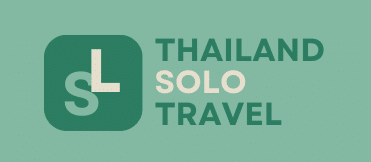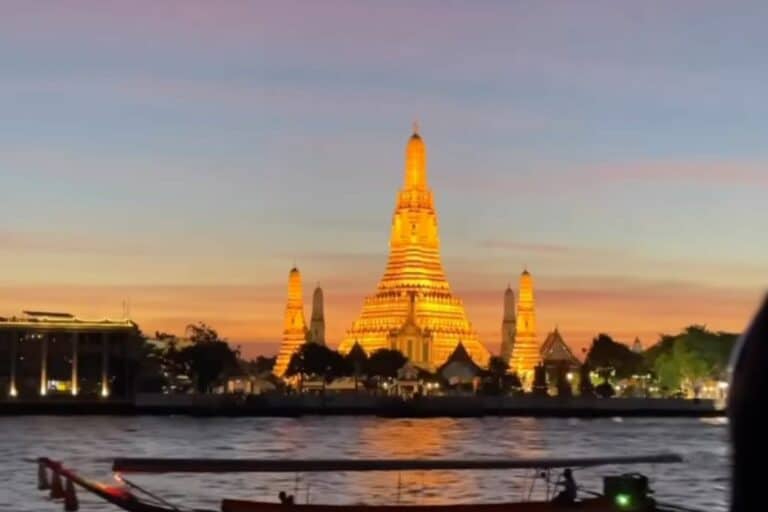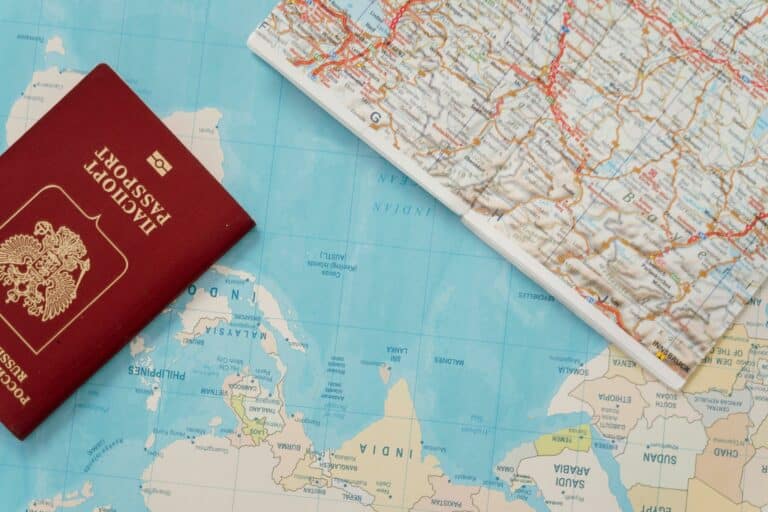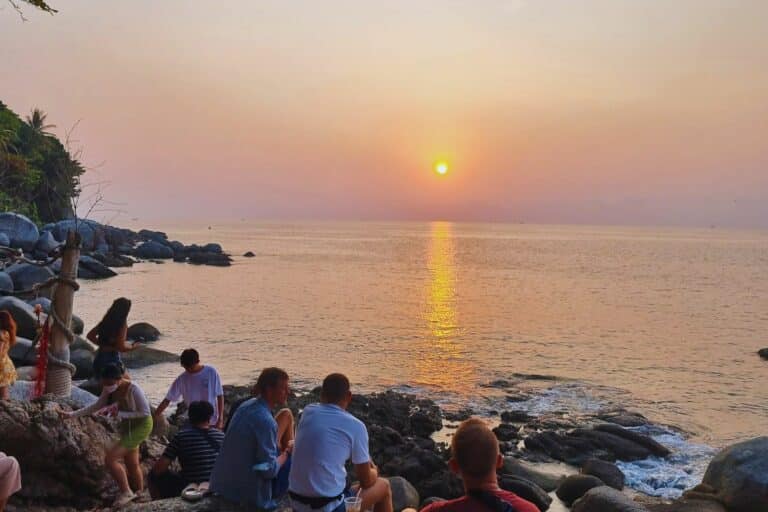The Ultimate Thailand Travel Tips: 10 Things to Know Before You Go
Thailand is the perfect introduction to Southeast Asia for first-time travelers. Known as the “Land of Smiles”, Thailand offers stunning scenery, exotic culture, delicious food, and friendly locals. I first visited Thailand over 10 years ago and have been back several times since – it’s one of my favorite destinations in the world!
But to make the most of your trip, there are some travel tips for Thailand you’ll need to know before you go. This comprehensive Thailand travel guide covers everything from packing tips and visa requirements to cultural etiquette and transportation advice.
Whether you’re planning a two-week Thailand itinerary or just looking for insider tips, read on to learn everything you need to know for an amazing trip to Thailand!
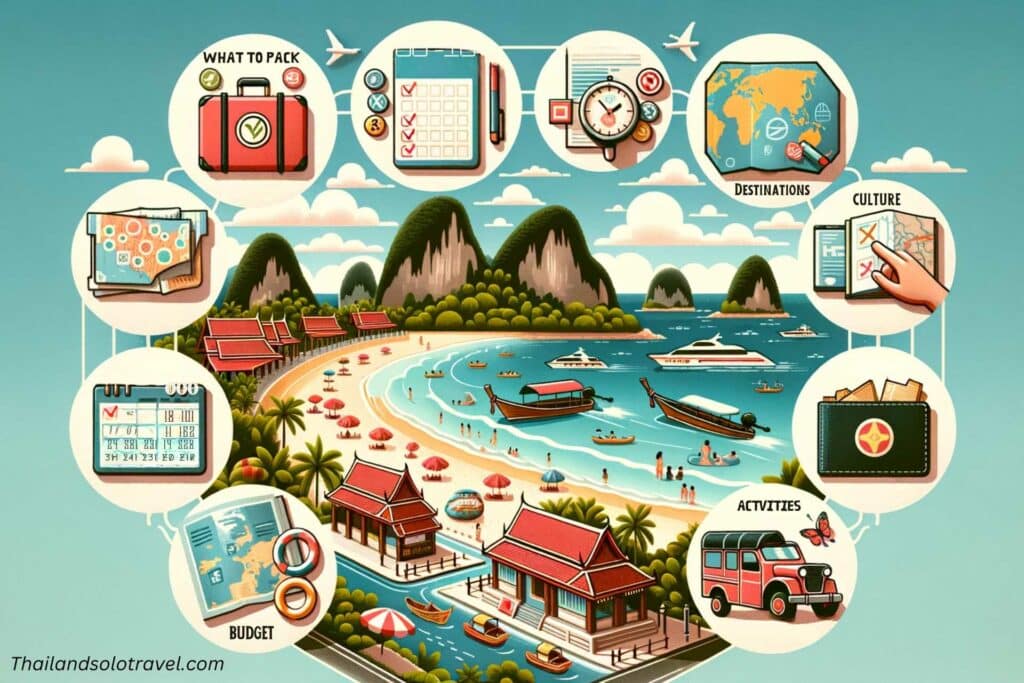
Planning Your Trip to Thailand
The first step for any great trip is proper planning and preparation. Here are some tips to keep in mind as you start mapping out the details of your Thailand vacation:
- Research visa requirements – Most nationalities can enter Thailand without a pre-arranged visa and receive a 30-day stamp upon arrival at the airport. But double-check the current requirements for your home country before your trip.
- Consider the best time to visit – Thailand has three seasons: cool & dry from November to February, hot from March to May, and rainy from June to October. The cool season has the best weather but higher prices and crowds.
- Book accommodations – Thailand offers accommodation options to suit all budgets, from luxury hotels to backpacker hostels. Booking early ensures you secure the best room rates and availability. Especially if you’re crafting a Thailand honeymoon itinerary, ensuring your stays are as dreamy as possible will undoubtedly enhance your romantic getaway. I recommend using Booking.com to find deals.
- Get travel insurance – Be sure to purchase comprehensive travel insurance for health coverage, trip cancellation, lost luggage and other travel mishaps. World Nomads offers good plans for Thailand.
- Research transportation options – Decide if you want to travel Thailand by tourist bus, train, domestic flights or a combination. Booking tickets in advance is recommended.
What to Pack for Thailand
Packing appropriately for your destination is key for comfort and convenience during your travels. Here are some Thailand packing tips:
Packing appropriately for your destination is key for comfort and convenience during your travels. Here are some Thailand packing tips:
- Light, breathable clothes – Think lightweight fabrics like cotton or linen. Avoid heavy materials in Thailand’s tropical climate.
- Modest clothing for temples – Dress conservatively when visiting sacred sites by covering shoulders, knees, and cleavage. Scarves and sarongs come in handy.
- Sturdy walking shoes – For all the walking, hiking and sightseeing you’ll be doing. Sandals are fine around beaches and towns.
- Reusable water bottle – Stay hydrated in the heat. Filtered water is sold cheaply at many stores/restaurants in Thailand.
- Mosquito repellent – Malaria isn’t a huge risk in Thailand but mosquito bites are annoying. Bring good insect repellent.
- Power adaptor – Thailand uses 220V electricity so bring a travel adaptor and power converter if needed.
- Copies of documents – Make paper copies and digital scans of your passport, travel insurance details and visas in case of loss.
- Medications – Stock up on any prescription meds you need. Pepto-Bismol and antihistamines come in handy too!
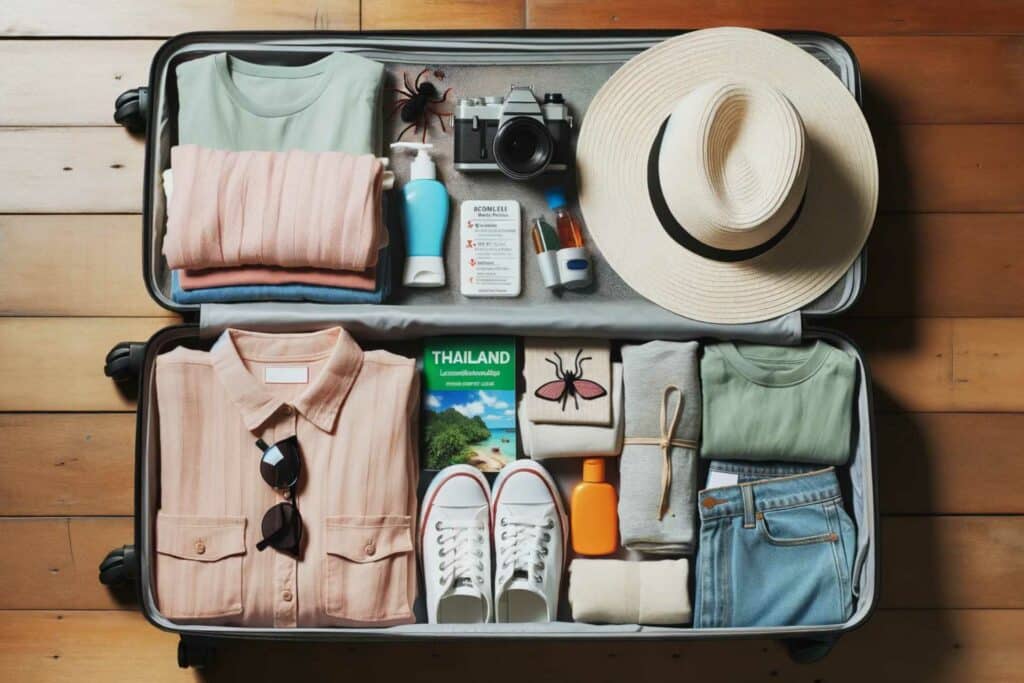
Thailand Regions and Destinations
From bustling Bangkok in the south to mountain towns in the north, Thailand offers diverse landscapes and attractions. Here are some of the best places to visit on your Thailand itinerary:
Bangkok
As Thailand’s vibrant capital city, Bangkok provides an assault on the senses, with its chaotic traffic, spicy street food aroma wafting through the air, and lavish temples around every corner. Don’t miss top attractions like:
- Grand Palace Complex – The revered royal palace and Wat Phra Kaew house the sacred Emerald Buddha statue.
- Wat Pho – Home to the enormous reclining Buddha statue and Thailand’s largest collection of Buddha images.
- Chatuchak Weekend Market – One of the world’s largest markets with over 15,000 vendors operating on weekends.
- Khao San Road – backpacker hub with cheap accommodation, restaurants, bars and shopping.
Chiang Mai
The laidback city of Chiang Mai provides a mellower alternative to Bangkok with its leafy boulevards and ancient temples. Top attractions include:
- Doi Suthep – A sacred mountaintop temple with city views and wandering monks. Reach it via a 300-step staircase.
- Elephant Nature Park – Sanctuary caring for rescued elephants in a natural environment (no riding!).
- Wat Chedi Luang – 15th century Buddhist temple with a partially ruined chedi (stupa) considered one of the city’s most important sites.
- Night Bazaar – Sprawling night market with handicrafts, souvenirs, street food and live music performances.
Southern Islands
Thailand’s southern islands lure travelers with sugar-sand beaches and aquamarine waters. Some favorite islands:
- Koh Samui – A popular resort island offering luxurious beachfront hotels alongside backpacker bungalows. Don’t miss Big Buddha temple.
- Koh Pha Ngan – Home to the famous full moon party at Haad Rin beach. More sedate beaches and bays elsewhere on the island.
- Koh Tao – Known for its amazing coral reefs and cheap scuba diving courses to earn your PADI certification.
- Krabi – Mainland hub with turquoise waters and awe-inspiring limestone karsts like Phi Phi island and Railay Beach.
Thailand Itineraries
With limited vacation time it helps to be strategic when planning where to go in Thailand. Here are some recommended Thailand itineraries:
1 Week in Thailand:
– 3 days in Bangkok for city sights
– Overnight train to Chiang Mai
– 2 days exploring Chiang Mai
– Overnight bus to Koh Samui or Koh Pha Ngan
2 Weeks in Thailand:
– 4 days in Bangkok
– 3 days in Chiang Mai with excursions
– Overnight train to Surat Thani
– 6 days island hopping – Koh Samui, Koh Pha Ngan, Koh Tao
3 Weeks in Thailand:
– 5 days in Bangkok
– 4 days in Chiang Mai and surroundings
– Overnight train to Phuket
– 1 week exploring southern islands – Khao Lak, Krabi (Railay Beach), Koh Phi Phi
No matter which itinerary you choose, I recommend spending a few days in Bangkok first since it’s a convenient transport hub when heading north to Chiang Mai or south to the islands.
Getting Around Thailand
Thanks to Thailand’s strong tourism infrastructure, getting around the country is generally easy and affordable. Here are some tips for transportation:
- Domestic flights – Fly between Bangkok, Chiang Mai, Phuket and other airports. Book early for the best fares.
- Overnight trains – Great way to travel between Bangkok and Chiang Mai. Book your berth early.
- Intercity buses – Reliable bus network connects all towns and cities. VIP buses offer added comfort.
- Songthaews – Shared pickup trucks acting as buses in rural areas. Wave them down and negotiate a fare.
- Ferries – Hop between islands in southern Thailand by ferry or speedboat. Book ahead in high season.
- Taxis – Use official metered taxis like in Bangkok. Avoid unmetered taxis who may overcharge.
- Tuk-tuks – Iconic auto-rickshaws zipping around cities and towns. Bargain the fare first.
- Motorbike taxis – Easy way to beat traffic in Bangkok. Wear a helmet for safety.
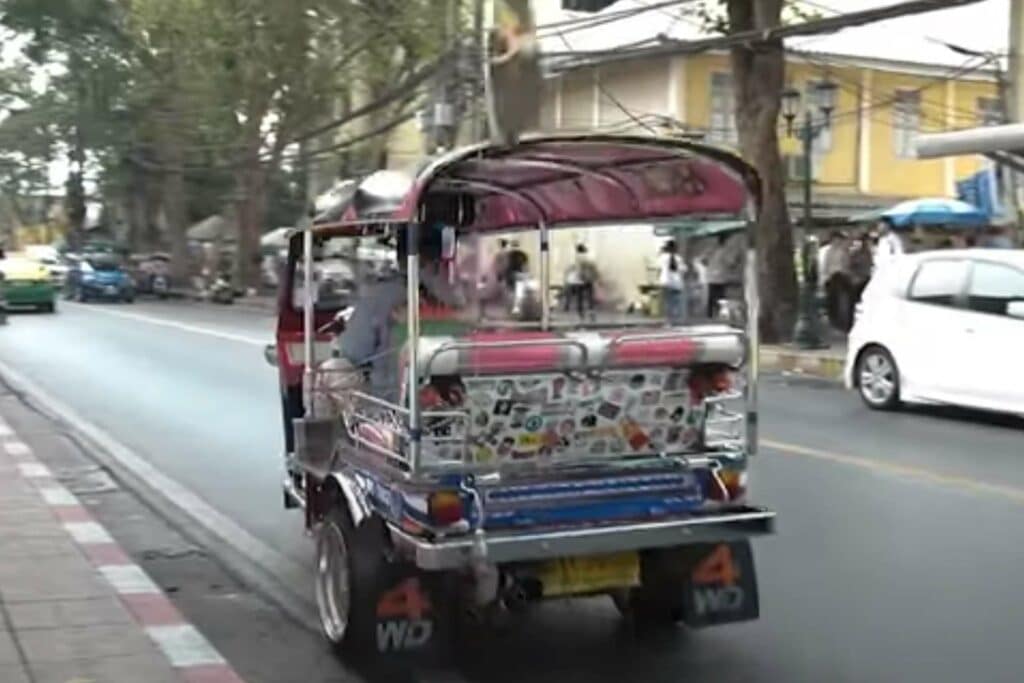
Thailand Travel Budget
One of the biggest perks of traveling in Thailand is how affordable it is compared to many other international destinations. Here are some average daily costs:
– Dorm bed in hostel – 300 to 600 baht ($9-18 USD)
– Basic hotel room – 800 to 1500 baht ($24-45 USD)
– Street food meals – 30 to 150 baht ($1-4.50 USD)
– Restaurant meals – 150 to 300 baht ($4.50-9 USD)
– Domestic bus/train tickets – 100 to 600 baht ($3-18 USD)
– Domestic flights – 1000 to 4000 baht ($30-120 USD)
– Temple entrance fee – 20 to 500 baht ($0.60-15 USD)
– Cocktail/beer – 150 to 300 baht ($4.50-9 USD)
You can get by comfortably in Thailand on a budget of 1000 to 1500 baht ($30-45 USD) per day if you stay in hostels, eat mainly street food, use public transport and avoid excessive partying!
Thailand Culture and Etiquette
Thailand welcomes millions of foreign visitors per year, but it helps to understand local customs as you explore the Land of Smiles. Here are some key cultural tips:
- Greetings – The wai, with palms pressed together in a prayer-like gesture, is used for hello and goodbye.
- Shoes – Remove shoes when entering homes, temples, and some shops/restaurants. Avoid pointing feet at people or Buddha images.
- Touching heads – The head is considered sacred, so don’t touch another person’s head.
- Modesty – Dress conservatively, especially at sacred sites. Avoid too much PDA.
- Speaking to monks – As a female, don’t touch monks or hand objects directly to them.
- Speech – Avoid publicly criticizing or losing your temper. Thais value calmness and non-confrontation.
- The Royal Family – Treat the monarchy with utmost respect. Never speak ill of the royal family.
- Temple etiquette – Sit with feet pointed away from Buddha statues, don’t climb on sacred structures, etc.
- Haggling – Expect to bargain at markets and street stalls. Do it politely and with a smile!
Most importantly, represent your home country respectfully. Thais dislike loud, arrogant, and rude foreign tourists. With some cultural awareness, you’ll find the locals to be incredibly gracious, helpful, and welcoming!
Experiencing the Best of Thailand
From world-class beaches and diving to captivating history and culture, Thailand offers endless opportunities for adventure. Here are some top activities and attractions to enjoy:
- Take a Thai cooking class in Bangkok, Chiang Mai or Phuket to learn authentic recipes and techniques. You’ll be an expert at making pad thai in no time!
- Splash and soak in beautiful waterfalls like Erawan Falls in Kanchanaburi or the many cascades around Chiang Mai.
- Celebrate Songkran in mid-April when all of Thailand erupts into the world’s biggest, wettest water fight!
- Shop at Bangkok’s Chatuchak Weekend Market with over 15,000 stalls selling everything from authentic Thai crafts to tasty street food.
- Learn to dive or complete your PADI certification on Thailand’s top scuba spot – Ko Tao. Dive with sharks and rays!
- Experience the energizing Full Moon Party on Ko Pha Ngan with 20,000+ revelers partying on the beach.
- Trek through thick jungle and stay in hill tribe villages in Northern Thailand’s remote mountains around Chiang Mai and Pai.
- Take a Thai massage course and learn the ancient practice of nuad bo rarn you can use to treat friends and family.
No matter your interests, Thailand offers incredible experiences to create lasting memories. Let your spirit of adventure guide you!
Final Thailand Travel Tips
To wrap up this Thailand travel guide, here are a few final tips:
- Always carry toilet paper/tissues – public restrooms often don’t have it.
- Don’t stress about sticking to a rigid itinerary. Go with the flow!
- Get a local prepaid SIM card for cheap calls and internet access.
- Carry small bills – you’ll need them for taxis, tips and street food vendors.
- Downloading the Grab app is better than haggling with taxis.
- Respect culture, shop locally, and leave places as you found them!
I hope these Thailand travel tips help you feel prepared and excited for your upcoming trip! With an open mind and sense of adventure, you’re sure to have an amazing time in Thailand.
FAQs: Travel Tips For Thailand
What are some things to know before visiting Thailand?
Before visiting Thailand, it’s important to know a few key things. First, Thai people are very friendly and polite, so it’s good to show respect and be polite to them as well. Additionally, when visiting temples, it’s customary to remove your shoes and dress modestly. It’s also important to keep your wits about you and beware of scams. Finally, make sure you have all the necessary travel documents, such as a valid passport.
What are some tips for finding the best Thailand travel deals?
To find the best Thailand travel deals, it’s a good idea to do some research and compare prices. Look for reputable travel agencies or websites that offer competitive prices. It’s also a good idea to be flexible with your travel dates, as prices can vary depending on the time of year. Don’t be afraid to ask around for recommendations or check out travel forums for insider tips.
What should I know about Thai food?
Thai food is known for its delicious flavors and unique combinations. When dining in Thailand, be prepared to try new dishes and flavors. Thai food can be spicy, so if you don’t like spicy food, make sure to ask for milder options. Street food is very popular in Thailand and is usually safe to eat, as long as it’s cooked fresh and looks clean. However, if you’re unsure, it’s best to stick to reputable restaurants and vendors.
Are there any specific customs or etiquette I should be aware of?
Yes, there are a few customs and etiquette practices to be aware of in Thailand. One important thing to remember is to always point your feet away from Buddha statues or other important figures. Also, never touch someone’s head, as it is considered disrespectful. When entering a Thai home or establishment, it is customary to remove your shoes. Finally, it’s always a good idea to stay respectful and polite when interacting with Thai people.
What are some popular tourist attractions in Thailand?
Thailand offers a wide range of popular tourist attractions. In Bangkok, visitors can explore iconic landmarks such as the Grand Palace and Wat Pho, which is home to the famous reclining Buddha statue. Chiang Mai and Chiang Rai are also popular destinations, known for their beautiful temples and cultural experiences. The Full Moon Party on Koh Phangan is a famous event for party-goers, while elephant sanctuaries offer the chance to see these magnificent creatures up close in their natural habitat.
When is the best time to visit Thailand?
Thailand’s climate is generally hot and humid, with a rainy season that varies depending on the region. The best time to visit Thailand is generally during the cool and dry season, which is from November to February. However, this is also peak tourist season, so prices may be higher and popular destinations more crowded. The shoulder seasons of March to May and September to October can be a good time to visit as well, as the weather is still relatively good and prices may be more reasonable.
Is it safe to ride elephants in Thailand?
Riding elephants in Thailand has become a controversial topic due to concerns about animal welfare. Many tour operators claim to offer “ethical” elephant rides, but it’s important to do your research and choose a reputable sanctuary or organization that truly cares for the welfare of the elephants. Instead of riding elephants, consider visiting an elephant sanctuary where you can observe and interact with these gentle giants in a more natural and responsible way.
What should I know about street markets in Thailand?
Street markets are a vibrant part of Thai culture and offer a wide variety of goods and food. When visiting street markets, it’s important to be prepared for anything. They can be crowded and it’s easy to slip or lose your belongings, so keep an eye on your valuables. It’s also a good idea to cover your knees and shoulders out of respect for Thai customs. Don’t be afraid to haggle for the best prices, but always do so in a friendly and respectful manner.
Is it safe to eat street food in Thailand?
Street food is a popular and delicious part of Thai cuisine. In general, street food in Thailand is safe to eat as long as you choose clean food stalls that have a high turnover of customers. Look for vendors who cook the food fresh in front of you and whose food looks and smells clean. To avoid any potential stomach issues, it’s also a good idea to stick to cooked foods and avoid raw meat or seafood.
